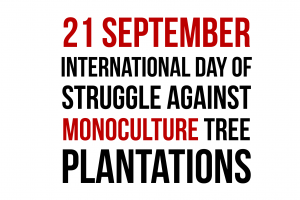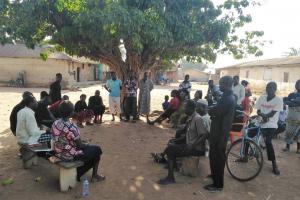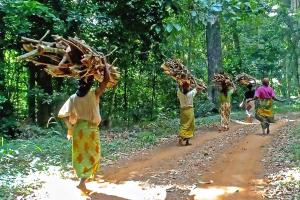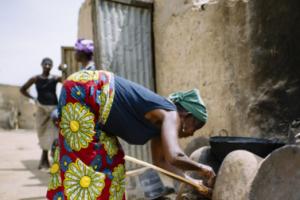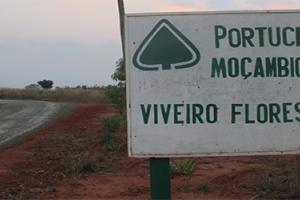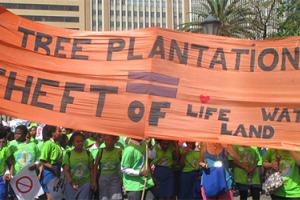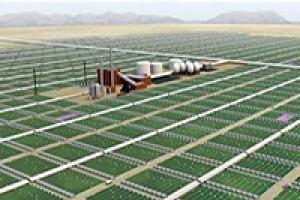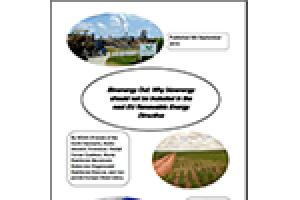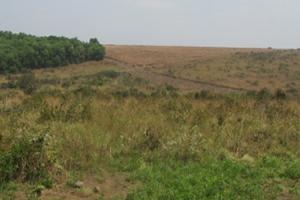Biomass
Woody biomass is marketed as a clean energy, but it is another false solution to the climate crisis. Not only is carbon released when trees are burned; the demand for charcoal for industrial uses, and wood chips and pellets for heating or electricity generation are driving expansion of monoculture tree plantations, particularly in the global South.
It is a day for organizations, networks and movements to celebrate resistance and raise their voices to demand, “Stop the Expansion of Monoculture Tree Plantations!"
This publication aims to alert community groups and activists about the corporate push for a new round of large-scale tree plantation expansion.
This editorial aims to raise a high alert with regard to the corporate agendas that dominate international forest-related processes, which appear to be entering new phases. The decisions taken have very real impacts on forest communities.
The Norwegian company APSD is establishing industrial eucalyptus plantations in Ghana for biomass fuel, which is considered a "carbon neutral" fuel. The Youth Volunteers for the Environment in Ghana spoke with communities affected by these plantations.
Plantation companies often argue that local populations are destroying the forests, particularly where people depend on firewood and/or charcoal for their energy needs. Thus, they argue, industrial plantations can “sustainably” provide this wood. But this is simply not true.
Industrial tree plantation projects in Mozambique are gaining more and more ground in processes of land acquisition and dispute. The Portuguese company, Portucel, has a “reforestation” plan through 2026 that aims to cover 356 thousand hectares.
This article gives an overview on the industrial tree plantation expansion threat in eastern and southern African countries, its external drivers, as well as the challenges this expansion presents to affected communities struggling to defend their land and livelihoods.
